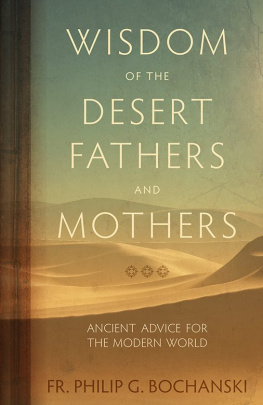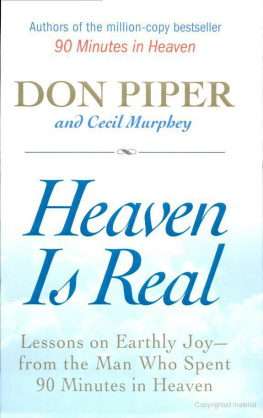Philip Bochanski - The Virtue of Hope: How Confidence in God Can Lead You to Heaven
Here you can read online Philip Bochanski - The Virtue of Hope: How Confidence in God Can Lead You to Heaven full text of the book (entire story) in english for free. Download pdf and epub, get meaning, cover and reviews about this ebook. year: 2019, publisher: TAN Books, genre: Religion. Description of the work, (preface) as well as reviews are available. Best literature library LitArk.com created for fans of good reading and offers a wide selection of genres:
Romance novel
Science fiction
Adventure
Detective
Science
History
Home and family
Prose
Art
Politics
Computer
Non-fiction
Religion
Business
Children
Humor
Choose a favorite category and find really read worthwhile books. Enjoy immersion in the world of imagination, feel the emotions of the characters or learn something new for yourself, make an fascinating discovery.

- Book:The Virtue of Hope: How Confidence in God Can Lead You to Heaven
- Author:
- Publisher:TAN Books
- Genre:
- Year:2019
- Rating:3 / 5
- Favourites:Add to favourites
- Your mark:
- 60
- 1
- 2
- 3
- 4
- 5
The Virtue of Hope: How Confidence in God Can Lead You to Heaven: summary, description and annotation
We offer to read an annotation, description, summary or preface (depends on what the author of the book "The Virtue of Hope: How Confidence in God Can Lead You to Heaven" wrote himself). If you haven't found the necessary information about the book — write in the comments, we will try to find it.
The Virtue of Hope: How Confidence in God Can Lead You to Heaven — read online for free the complete book (whole text) full work
Below is the text of the book, divided by pages. System saving the place of the last page read, allows you to conveniently read the book "The Virtue of Hope: How Confidence in God Can Lead You to Heaven" online for free, without having to search again every time where you left off. Put a bookmark, and you can go to the page where you finished reading at any time.
Font size:
Interval:
Bookmark:
OF HOPE
How Confidence in God Can
Lead You to Heaven
Father Philip Bochanski
TAN Books
Charlotte, North Carolina
The Virtue of Hope: How Confidence in God Can Lead You to Heaven 2019 Philip Bochanski
All rights reserved. With the exception of short excerpts used in critical review, no part of this work may be reproduced, transmitted, or stored in any form whatsoever, without the prior written permission of the publisher.
Scripture texts in this work are taken from the New American Bible, revised edition 2010, 1991, 1986, 1970 Confraternity of Christian Doctrine, Washington, D.C. and are used by permission of the copyright owner. All Rights Reserved. No part of the New American Bible may be reproduced in any form without permission in writing from the copyright owner.
Excerpts from the English translation of the Catechism of the Catholic Church for use in the United States of America 1994, United States Catholic Conference, Inc.Libreria Editrice Vaticana. Used with permission.
Cover design by Caroline K. Green
Library of Congress Control Number: 2019930531
ISBN: 978-1-5051-1418-8
Printed in the United States by
TAN Books
PO Box 410487
Charlotte, NC 28241
www.TANBooks.com
Printed in the United States of America
L ife at the beginning of the twenty-first century can seem challenging indeed. I wonder sometimes how many people still have the courage to read the paper or watch the evening news when the headline and teaser to every story seem to reiterate a very limited vocabulary almost incessantly: CrisisTurmoilUnrestViolenceWarPovertyHungerDiseaseAddictionCrime. These realities may not be new (indeed, in many ways they are almost as old as humanity itself, for they are as old as sin), but all too often they affect our daily lives, our neighborhoods, and our homes, and they threaten to consume the little part of the world that belongs to us and to those we love. They leave us feeling overwhelmed, out-matched, even desperate. Small wonder then that during the elections for president of the United States in 2008, one of the most memorable and perhaps most effective political advertisements simply showed a stylized portrait of one of the candidates accompanied by a single word in bold letters: HOPE.
But it is hardly coincidental that, at almost the same time, Pope Benedict XVI was addressing the universal Church with something much more substantial than a campaign poster, yet centered on the same theme. His encyclical letter Spe Salvi, which is translated Saved in Hope, was written as an attempt to do what Saint Peter exhorts the early Christians to do in his first letter, tucked away at the end of the New TestamentAlways be ready, he says, to give an explanation to anyone who asks you for a reason for your hope (1 Pt 3:15). Writing at such a momentous time in human historyfull of potential but also dealing with such difficult crisesthe Holy Father used this encyclical to reflect on Christian hope and the way that it transforms and fulfills all of our individual, earthly hopes by placing them in their proper context. When we understand the reasons for our hope, the Holy Father seems convincedwhen we know where it comes from and where its leading usthen we will have the strength to persevere along lifes road, however difficult our particular path may seem at any given moment.
This book has the same goal as Pope Benedicts encyclical: understanding the reasons that Christians have for hope and how to put that hope into practice. Were going to accomplish this goal in two ways because, as the Holy Father explains, a proper understanding of hope has to include two aspects. Of course, we have to appreciate the theological and philosophical foundation for what we believe about the Christian life and our relationship with God, because hope is a fundamental part of living out this relationship. Well rely on Sacred Scripture and the teachings of the Church, especially as we can find them in the Catechism and the writings and homilies of the popes. Well also rely on the work of saintly theologians and philosophers like Augustine and Thomas Aquinas, as well as some of their more modern interpreters, and well find that we can learn a thing or two from pre-Christian philosophers like Aristotle and Plato as well.
Just as important as this theological foundation, however, is the fact that, as Pope Benedict points out in Spe Salvi, To come to know Godthe true Godmeans to receive hope. Hope ensues from a real encounter with this God. Our pursuit of hope cannot remain something merely theoretical; it has to lead us to a deeper relationship with God, an encounter with the One who loves us and calls us to friendship with himself. As we consider Gods plan for us, we are going to see that we are created precisely for this encounter and this friendshipit is our destinyand that this is the reason that God gives us the virtue of hope in the first place.
Along the way, we are going to examine the lives of men and womensome from the early centuries of Christianity, some from our own daywho encountered God in moments of personal difficultysometimes in the midst of extreme crisesand in the process learned valuable lessons about hope. As we hear their life stories, and often their own words, these heroes of hope wont just inspire us. Theyll also remind us that, as Pope Benedict once told an interviewer, there are as many ways to God as there are people and that we, too, may find our way to an encounter with him as long as we hold on to our hope.
We should begin our discussion of the virtue of hope by examining what we mean by virtue. Its one of those words that we use quite often, without stopping to make sure that everyone understands the same thing when they say it. Sometimes we use it in a half-joking, chiding tone, reminding someone whos about to lose her temper that patience is a virtue! At other times, virtue and vice take the form of the tiny comic angel and devil on the shoulders of someone trying to make a decisionand in these depictions, somehow virtue never seems to appear quite as strong or quite as interesting. Whatever our preconceived cultural ideas of virtuous people or virtuous actions might be, well find that the classic philosophical and theological definition of virtue is actually quite specific and that each of its various aspects has something important to teach us as we learn how to become more hopeful people.
The notion of virtue can be found long before Christianity in the works of the great Greek philosophers, although they used it somewhat differently than Christians do today. For thinkers like Aristotle and Plato, virtue was equivalent to aret, a word that connotes excellence in the sense of being fulfilled or living up to ones potential. Aret in this sense does not necessarily imply anything moral: A house that is in perfect proportion, symmetrical and beautifully adorned, has the aret of a house. The dog that wins Best in Show at the Westminster Kennel Club does so because he possesses the aret of his breed. A shoemaker who makes really excellent shoes does so with aret; an athlete who wins championships does likewise.
Of course, the philosophers did acknowledge a special kind of aret, what we may call ethical virtues, that is necessary for human beings who live together in society and therefore must work for the common good. Aristotle said that these ethical virtues were found by striving for the meanthe good quality that is the proper balance between two vices, which could be considered opposite extremes. Be neither cowardly nor foolhardy, he said, but find your aret
Font size:
Interval:
Bookmark:
Similar books «The Virtue of Hope: How Confidence in God Can Lead You to Heaven»
Look at similar books to The Virtue of Hope: How Confidence in God Can Lead You to Heaven. We have selected literature similar in name and meaning in the hope of providing readers with more options to find new, interesting, not yet read works.
Discussion, reviews of the book The Virtue of Hope: How Confidence in God Can Lead You to Heaven and just readers' own opinions. Leave your comments, write what you think about the work, its meaning or the main characters. Specify what exactly you liked and what you didn't like, and why you think so.








